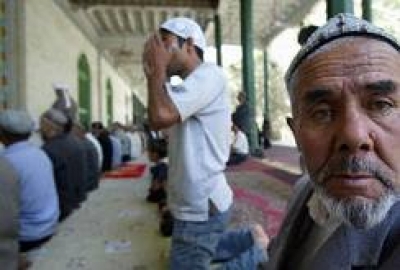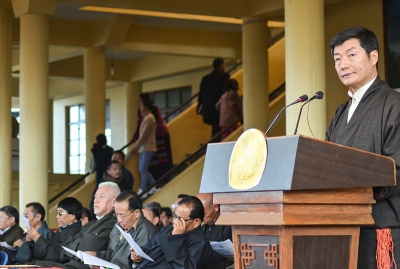China official seeks tougher rules on religion after Xinjiang blasts
BEIJING (Reuters) - A senior Chinese official called for stricter management of religious activities, state media said on Monday, following explosions in China's western region of Xinjiang which authorities say were masterminded by a religious extremist. Police shot dead six people and six more died when explosives they were carrying detonated in Xinhe county, according to weekend media reports. Blasts struck a beauty salon and a vegetable market.


